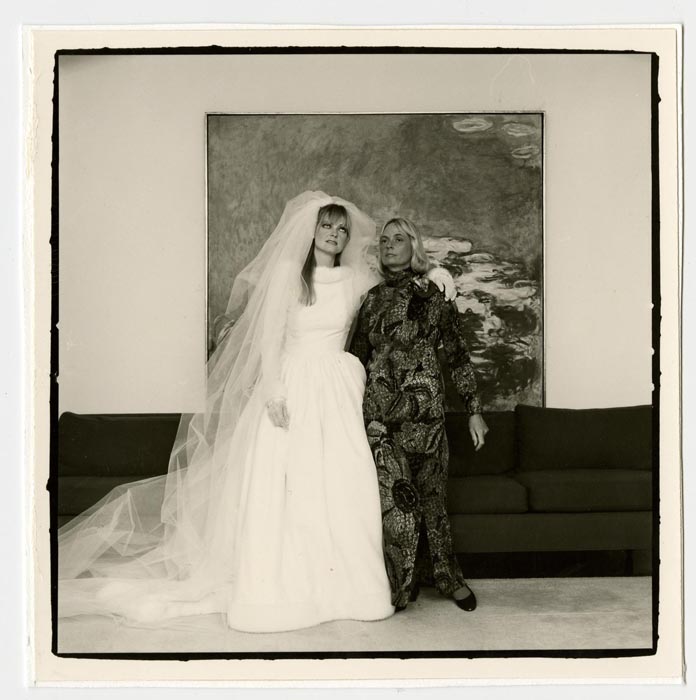Paging: Just One of the (Vanderbilt) Girls

WENDY BURDEN WITH HER MOTHER
“It’s a testament to his libido, if not his character, that Cornelius Vanderbilt died of syphilis instead of apoplexy.” So begins Dead End Gene Pool (Gotham Books), Wendy Burden’s memoir about growing up in one of America’s oldest and wealthiest families. Burden is the great-great-great-great granddaughter of Cornelius “The Commodore” Vanderbilt, and one of the few girls in a long line of successful men; the first, perhaps, to openly discuss what growing up Vanderbilt was really like. “As a girl–and there weren’t many girls–they didn’t know what to do with me,” Burden explains of how differently she and her brothers were treated. “It was always, I shouldn’t be talking too much, or I shouldn’t be in the picture…My grandmother bought me boys’ underwear, and my grandfather was always shoving me out of the way, telling me to shut up. It was just so odd.”
Burden didn’t set out to write a memoir. She trained as a painter and forayed into the culinary arts; what would become Gene Pool started out as a cookbook, featuring recipes from Chez Wendy, the French restaurant she once owned. “I began to research the food that I had been influenced by, because my father’s side of the family always had French chefs, and then I got influenced by the people themselves,” she explains. Concurrently, and bizarrely, members of the Vanderbilt clan started dying in rapid succession, encouraging her familial curiosity. “I didn’t set out to air my family’s dirty laundry. When I first was writing [the book] as a memoir, I was so removed. I didn’t even give people’s names, like, my grandfather was The Grandfather; my brother was The Brother.” Burden pauses, then continues: “I wasn’t aware that I was exposing people. I actually was quite naïve about it, and I would have done things a little bit differently if I had been more experienced. But I have no regrets.”
It’s a good attitude, considering the initial response to Gene Pool, which focused largely on the tell-all aspect of the book, and the surviving relatives’ responses. Burden takes a professedly irreverent approach to telling her family’s story, exploring difficult topics through characters who are, if not exactly sympathetic, almost caricature–and not a little tragic. The author’s father, who “did everything he was supposed to,” commits suicide when she is only 6; Burden’s absentee mother does not let her (first) husband’s death slow her jet-setting, or even stop her from constantly tormenting the author about her weight. Her late grandfather, William A. M. Burden (a former president of the Museum of Modern Art), is a robust alcoholic with air-tight ideals about the roles of men and women in his family. Her grandmother is a tiny, fierce woman, who always wears pearls, is surrounded by poodles, and knows how to throw a party worthy of New York society.
Burden also puts herself under the microscope, chronicling her less-than-ladylike behavior (shoving her obnoxious brother out of a moving vehicle, for example). And, while theoretically rejecting the opulence of rich-kid living, she experiences luxury that few will ever know, including frequent trips to her grandparents’ Fifth Avenue apartment and the various family estates; extravagant Christmases (she received a Hermès scarf annually, but she wanted a pony. Her brother got one.); and, generally, exposure to a New York that no longer really exists. “My favorite parts of the book are talking about New York,” she says. “It was sort of romantic, like when you look at old movies. It looks like everybody’s just having fun all the time… though, obviously, it was sort of the haves instead of the have-nots.”






